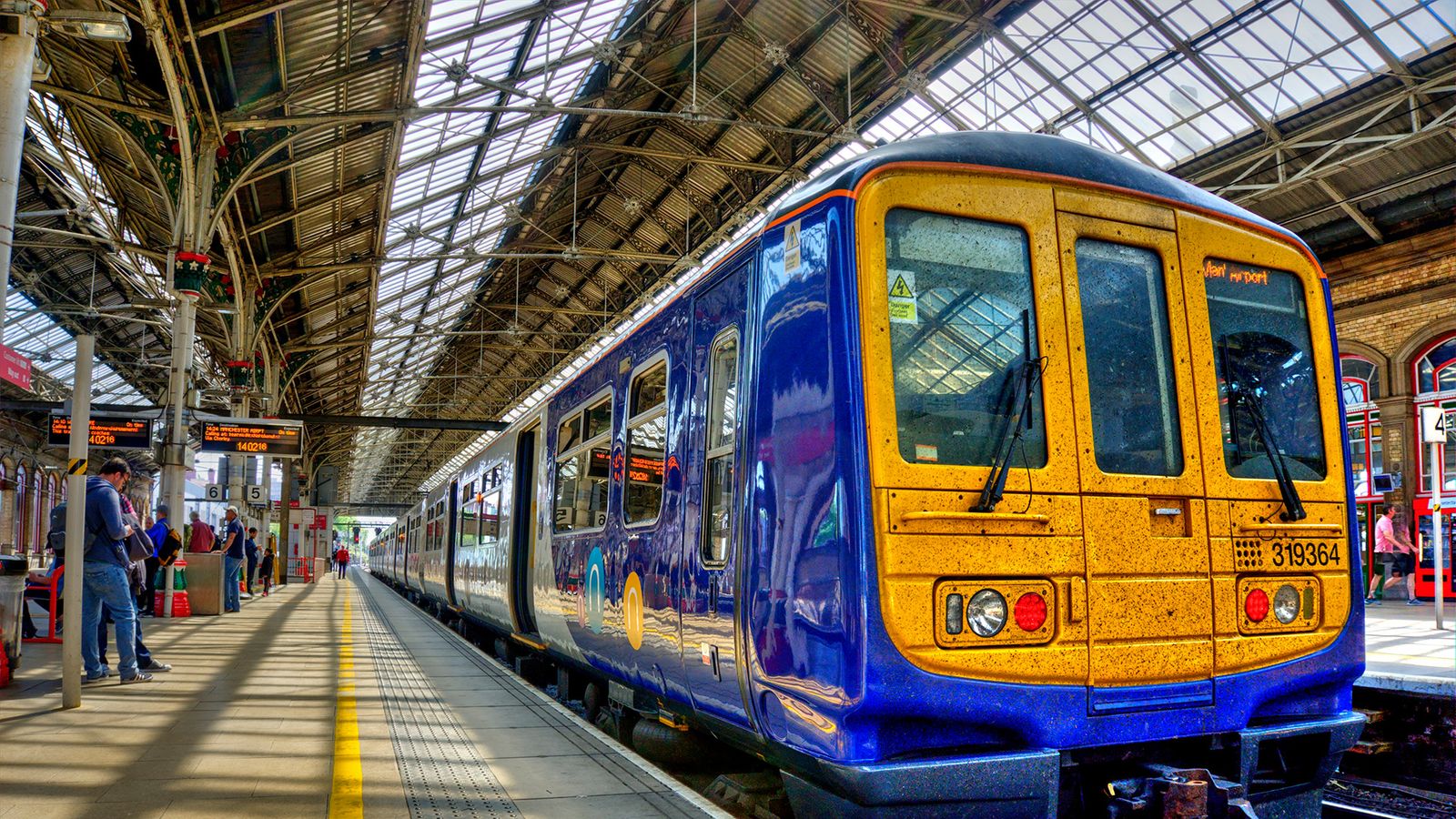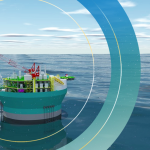Rail fares in England and Wales will see their biggest rise in nearly a decade this week.
The cap on fare rises will increase on Tuesday, meaning ticket prices could go up by as much as 3.8%.
The cap is in line with the Retail Price Index (RPI) measure on inflation for last July, plus one percentage point, and will be the biggest rise since 2013 according to the Rail Delivery Group (RDG).
Please use Chrome browser for a more accessible video player
For example, an annual season ticket between Brighton and London will go up by £194 to £5,302 and a year-round ticket between Liverpool and Manchester goes up by £105 to £2,865.
Season ticket fare rises are regulated by UK, Scottish and Welsh governments on most commuter routes.
Before the COVID pandemic began, most other fares were controlled by train operators, but those have since come under state control after billions of pounds was pumped into the industry to keep services running.
A Department for Transport spokesman said: “We have protected passengers by delaying these fare rises by two months and, even then, opting for a figure well below current inflation rates.
Train announcements: Grant Shapps to scrap ‘endless torrent’ of messages in ‘bonfire of the banalities’
COVID-19: Train passengers suffer one of the worst periods on record for cancellations
Rail fares to rise by 3.8% in March in biggest increase since 2013
“However, we must now look to recoup some of the £14 billion which was spent to keep vital services running throughout the pandemic in a way that is fair for all taxpayers.
“By striking this balance, we will be able to encourage people back on to trains whilst funding the necessary improvements and unprecedented investment that will benefit all those who use our railways.”
Follow the Daily podcast on Apple Podcasts, Google Podcasts, Spotify, Spreaker
The RPI for January was 7.8%, latest figures show.
An RDG spokesman said: “The government’s decision to hold fares down below current inflation is positive.
“It is important that fares are set at a level that will encourage more people to travel by train in the future, helping to support a clean and fair recovery from the pandemic.”
However, Railfuture has accused the government of “stoking the fires of the cost of living crisis”, calling the rises to fares “eye-watering”.
Bruce Williamson from the campaign group asked “how does this help get the country back to work?”, claiming passengers will be “bankrupted next year” if the formula for setting fares continues to rise with inflation.
Train operators are working to restore their services back to full capacity, after many were cut due to staffing shortages associated with the Omicron variant of COVID-19.
Please use Chrome browser for a more accessible video player
Labour’s shadow transport secretary Louise Haigh said: “This brutal Tory fare hike will be a nightmare for millions of passengers.
“Families are already facing tax rises and surging bills, and will now be clobbered with yet another eye-watering rise in the cost of the commute.”
Rail demand is still around a third below what it was before the pandemic enforced shut-downs.
A similar increase of 3.8% was implemented in Scotland on 24 January, while train fares in Northern Ireland are set by state-owned operator Translink, which does not use RPI.






















